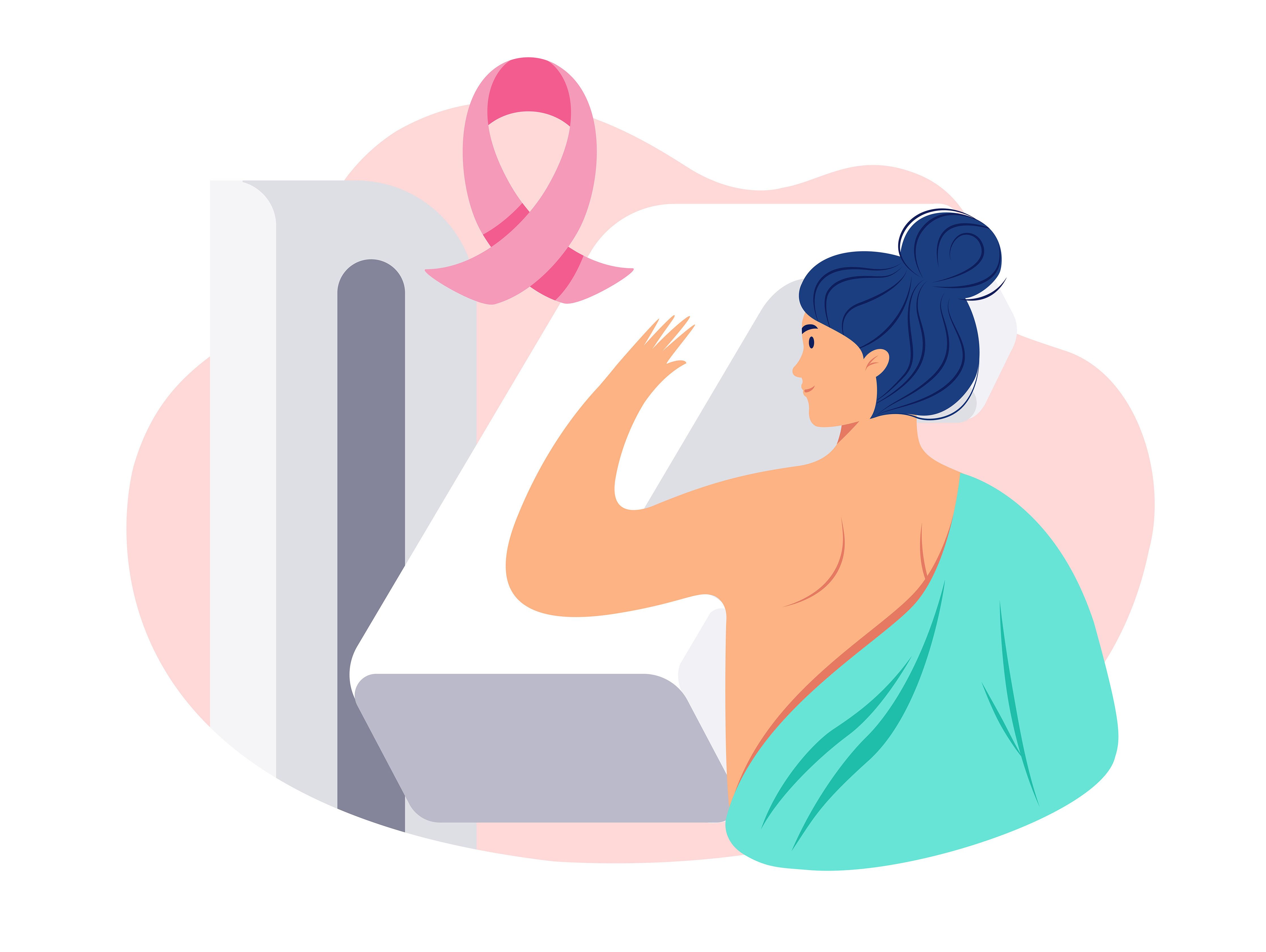- Center on Health Equity & Access
- Clinical
- Health Care Cost
- Health Care Delivery
- Insurance
- Policy
- Technology
- Value-Based Care
Swedish Study Links False-Positive Mammograms to Elevated Breast Cancer Risk
Swedish women with prior false-positive mammograms, particularly those aged 60 to 75 with prior biopsies and low density, show elevated breast cancer risk, necessitating closer monitoring and better screening.
Illustration of woman getting mammogram | Image Credit: forestgraphic - stock.adobe.com

A Swedish matched cohort study found increased risks of breast cancer in women with prior false-positive results, further supporting the importance of improving breast cancer screening methods.
The study was based in Stockholm, ranging from January 1, 1991, to March 31, 2020. Mammographs are known to reduce breast cancer mortality by 20% but false-positive results mark a critical public health issue, affecting 11% of US women and 2.5% of European women after just 1 screening. Women without false-positive results compared with false-positives have a higher chance of breast cancer development within a 10-year follow-up period.
Patient demographics included the date of cancer diagnosis, side of breast cancer, type of breast cancer, tumor size, lymph node involvement, estrogen receptor status, progesterone receptor status, ERBB2 status, tumor grade, and Ki-67 status. There were about 99.3% of women that attended the follow-up evaluation, with 50% doing so in 13 days and 90% were within 27 days from their initial mammography.
Over 593,000 women aged 50 to 69 years were enrolled from the Stockholm Mammography program, resulting in 2.6 million screening records (4 per woman). Among these, 45,213 had a first false-positive result. For each, 10 randomly chosen controls with no recall were matched by age, screening year, and history. Women with false-positives, either left or right side, based on the recalled side, were assigned to the matched controls.
The study classified breast cancers as screening-defined (diagnosed between positive screening and next scan) or interval-defined (diagnosed after negative screening and before next scan). Both groups were followed until diagnosis, death, emigration, or March 31, 2020, whichever came first. False-positive cases had follow-up specifically for death until the same deadline.
Among women with false-positives, 45,213 underwent biopsies (April 2022 to February 2023). Statistical analysis compared their breast cancer incidence with non-recalled women. Risk factors based on baseline characteristics and breast cancer subtypes were assessed using Cox regression, adjusted for family history and education level (P < .05).
Nearly half a million Swedish women (average age 52 years) with no family history of breast cancer participated in the study. Among those who had a false-positive mammogram result, 11.3% developed breast cancer within 20 years, compared to 7.3% of those without a false-positive. Even after accounting for other factors, the link between false-positive results and breast cancer risk remained significant.
Significantly more women aged 60 to 75 years old had greater associations between false-positives and breast cancer risks compared with women aged 40 to 49 years as well as lower breast density to higher breast density. Higher risks of breast cancer were also present in women who underwent a biopsy when compared with women who were not recalled.
The link between false-positive mammograms and breast cancer incidence were explored, specifically subtype similarities. Excluding differences in laterality and tumor size, the risk of breast cancer was elevated after a false-positive result. Adjusted hazard ratios (HRs) showed a 1.92-fold increase for cancer on the same side (ipsilateral) as the false-positive, compared to no false-positive history. For cancer on the opposite side (contralateral), the HR was 1.28. The elevated risk for ipsilateral cancer declined over time with HR 2.57 at 2 years, 1.93 at 4 years, 1.69 at 6-10 years, and 1.51 at 10-20 years. Conversely, no significant increase in contralateral risk was observed throughout the follow-up period.
Larger tumors were identified more among women with false-positive results (> 20 mm) with an adjusted HR of about 1.47. The following screening attendance rate was lower for women with false-positive results (84.6%) than women without false-positive results (86.5%). Women with false-positive results had an overall increased risk of all-cause mortality (HR, 1.07) and death (HR, 1.84) due to breast cancer.
Authors discovered an elevated risk of developing breast cancer within 20 years for women who previously had false-positive mammograms. This risk was particularly high for women aged 60 to 75 who underwent biopsies and had low breast density, compared to the younger group of 40 to 49 year olds with higher breast density.
Despite its strengths in comprehensive data, long-term follow-up, and detailed tumor analysis through the Stockholm Mammography Screening Register, the generalizability of this Swedish study is limited. While false-positive rates may be similar in Europe and the US, the absence of US mortality data and direct comparisons between the regions hinders the broader application of its findings regarding increased breast cancer risk after false-positive mammograms.
For women with a false-positive result, the study suggests closer monitoring through the next 2 screenings along with spreading long-term breast cancer awareness among women with false-positive results to address potential increases in incidence and mortality rates. Evaluating factors like age at false-positive diagnosis and breast density through specialized programs, alongside biopsies, is another recommended solution.
Reference
Mao X, He W, Humphreys K, et al. Breast cancer incidence after a false-positive mammography result. JAMA Oncol. 2024;10(1):63–70. doi:10.1001/jamaoncol.2023.4519
